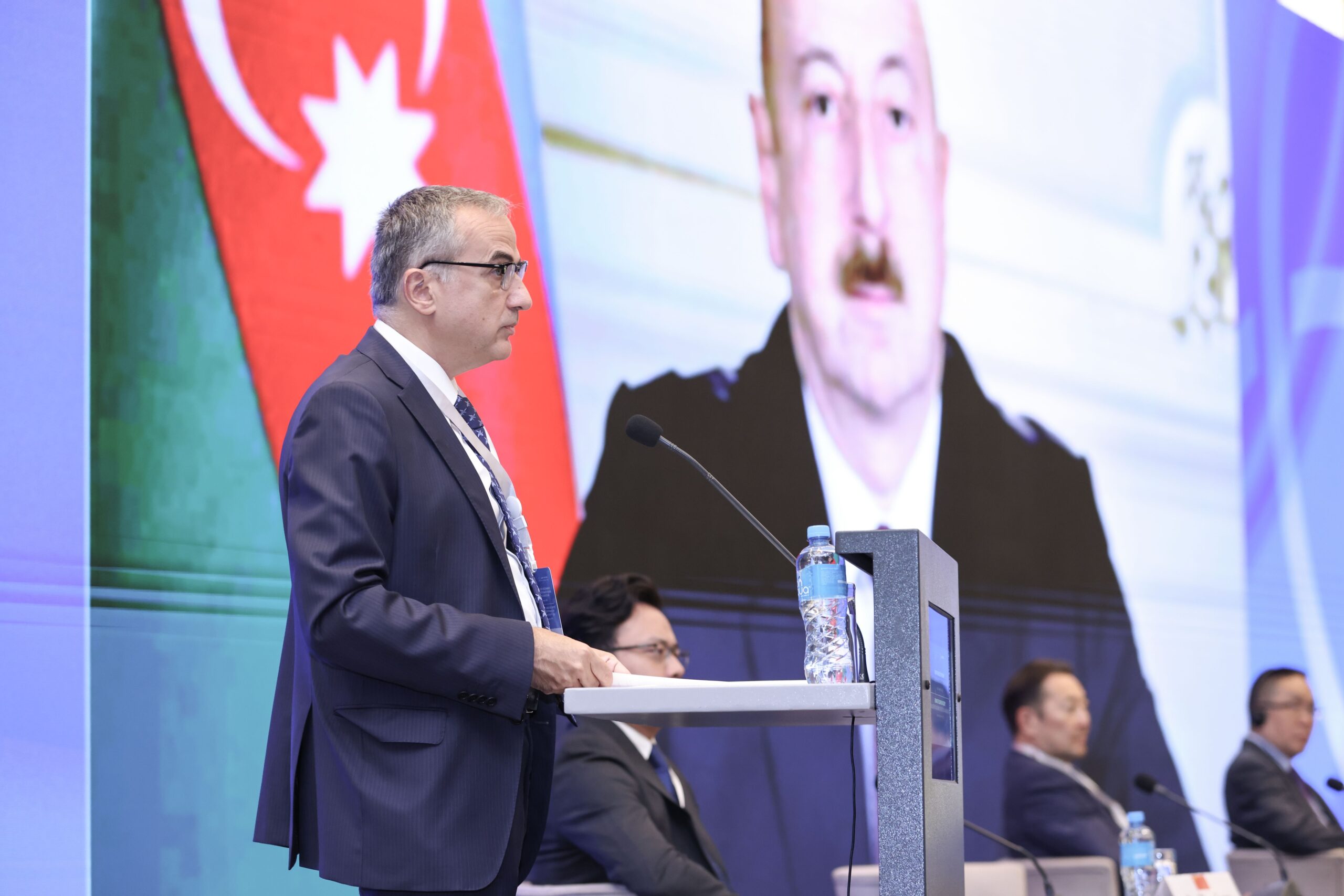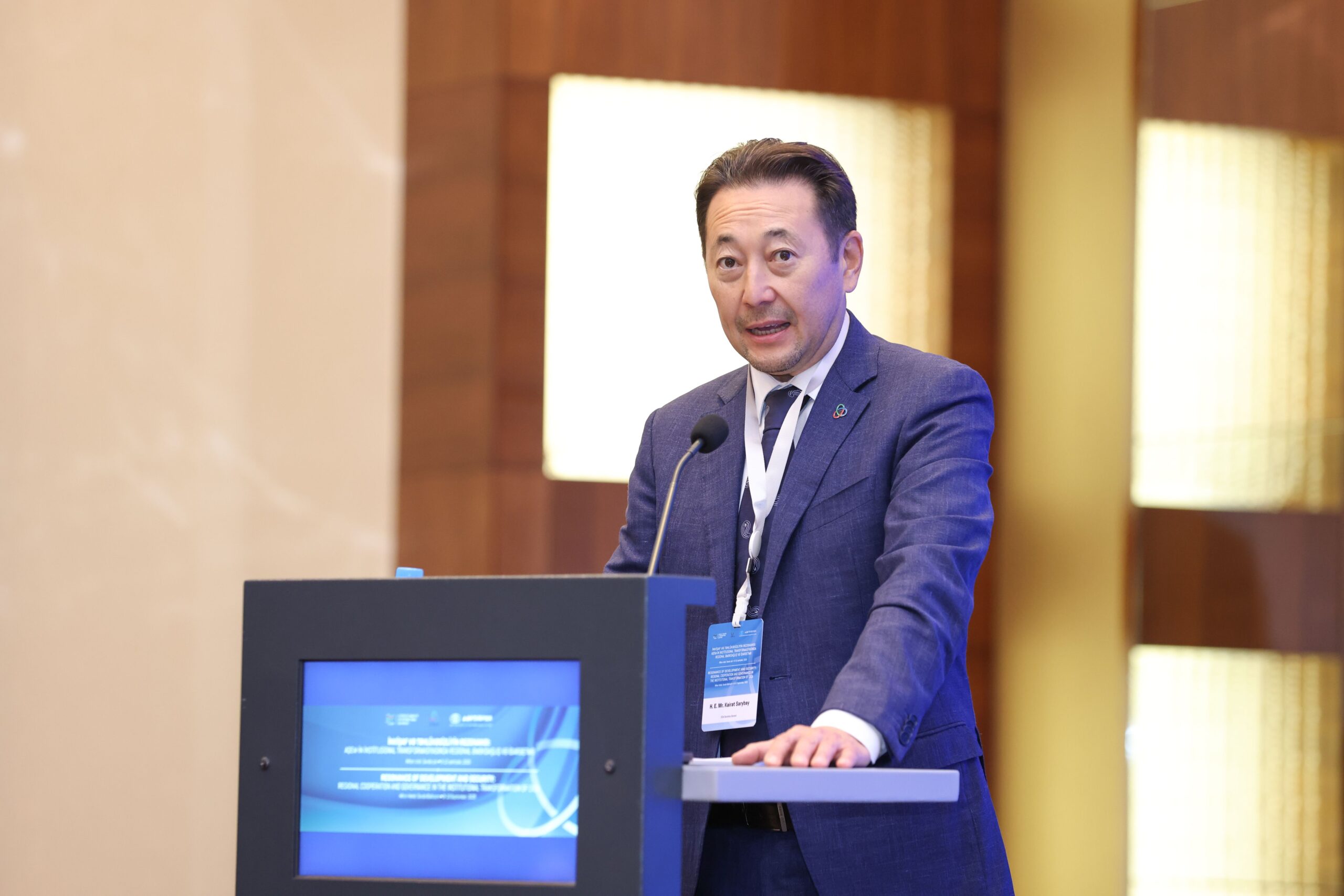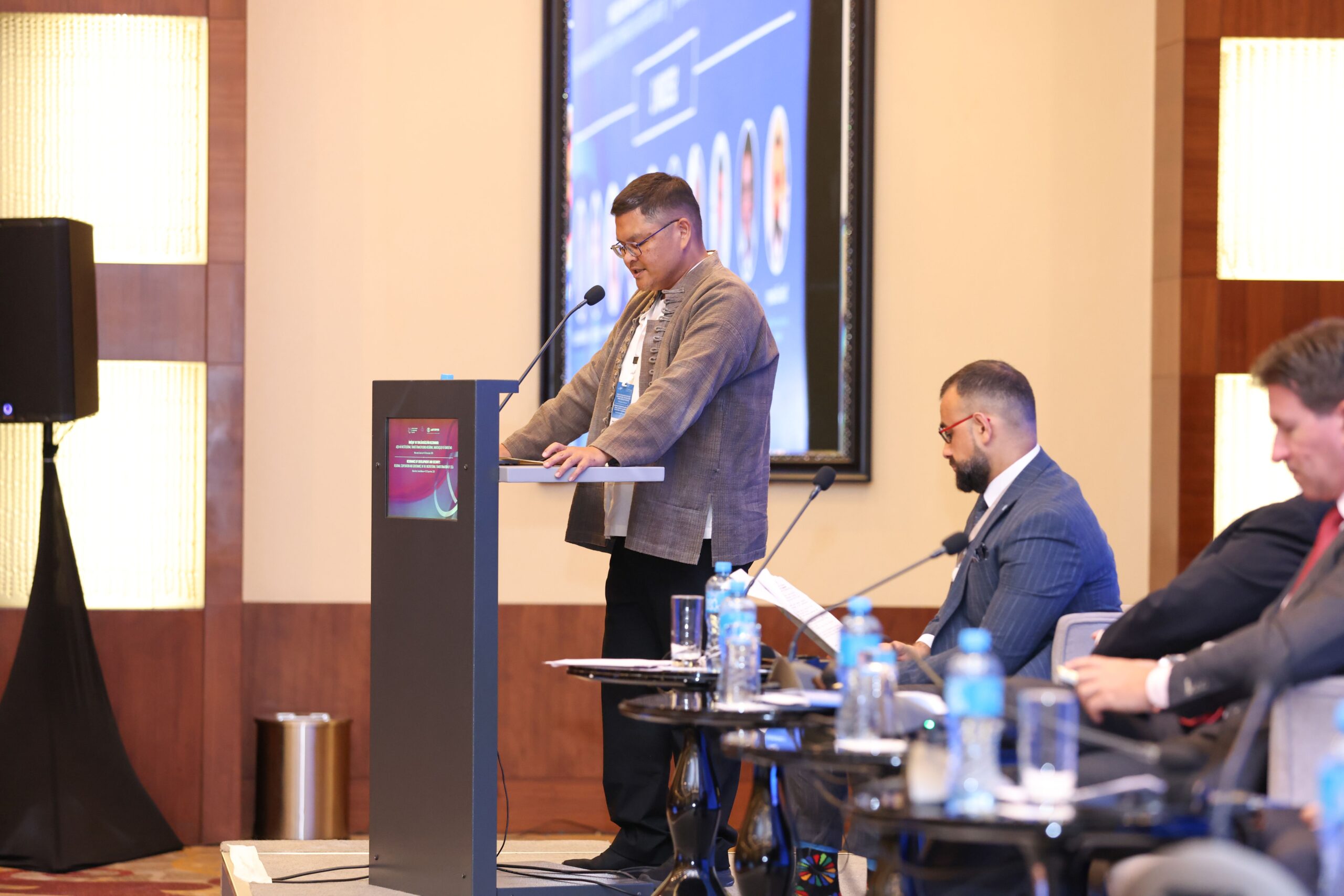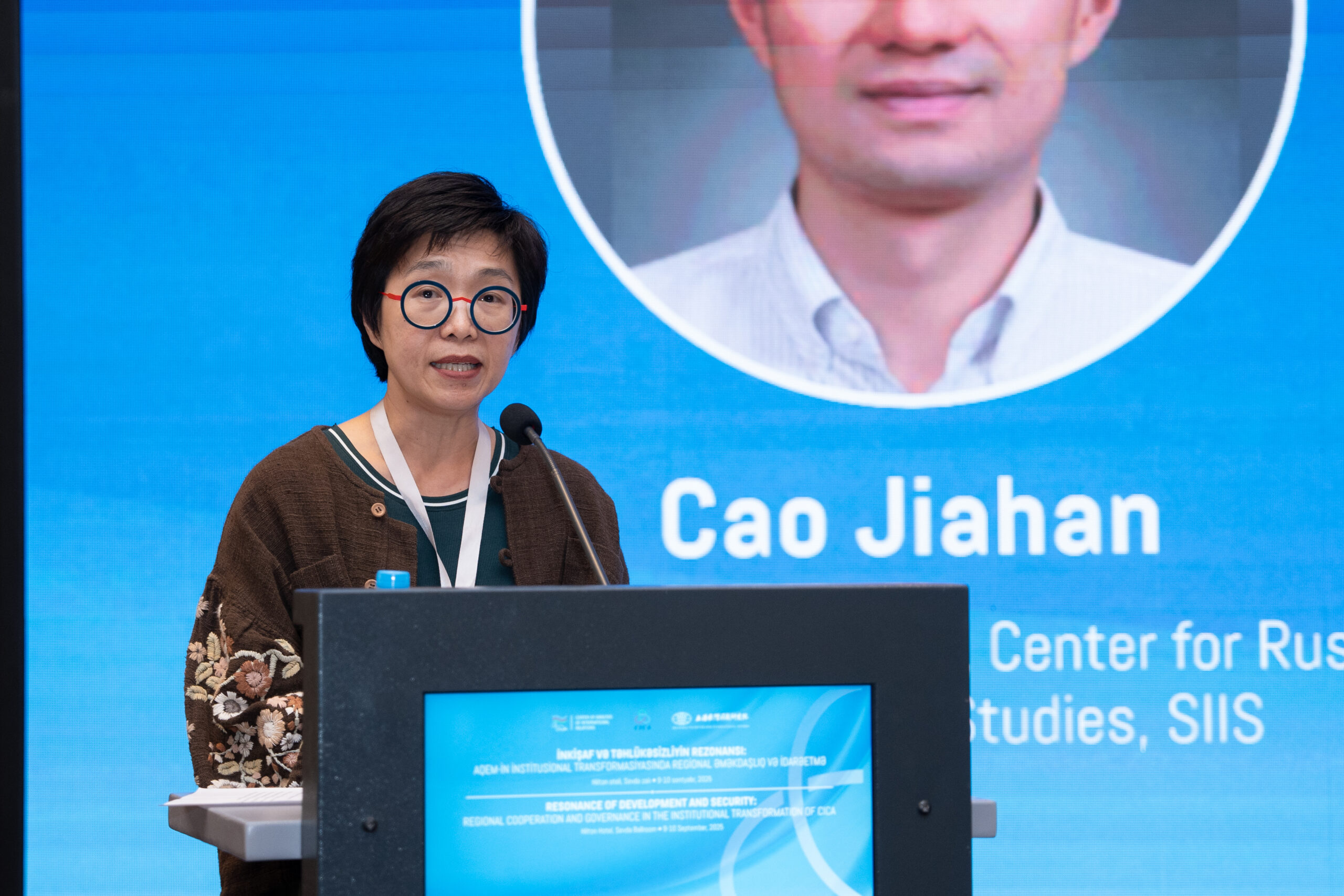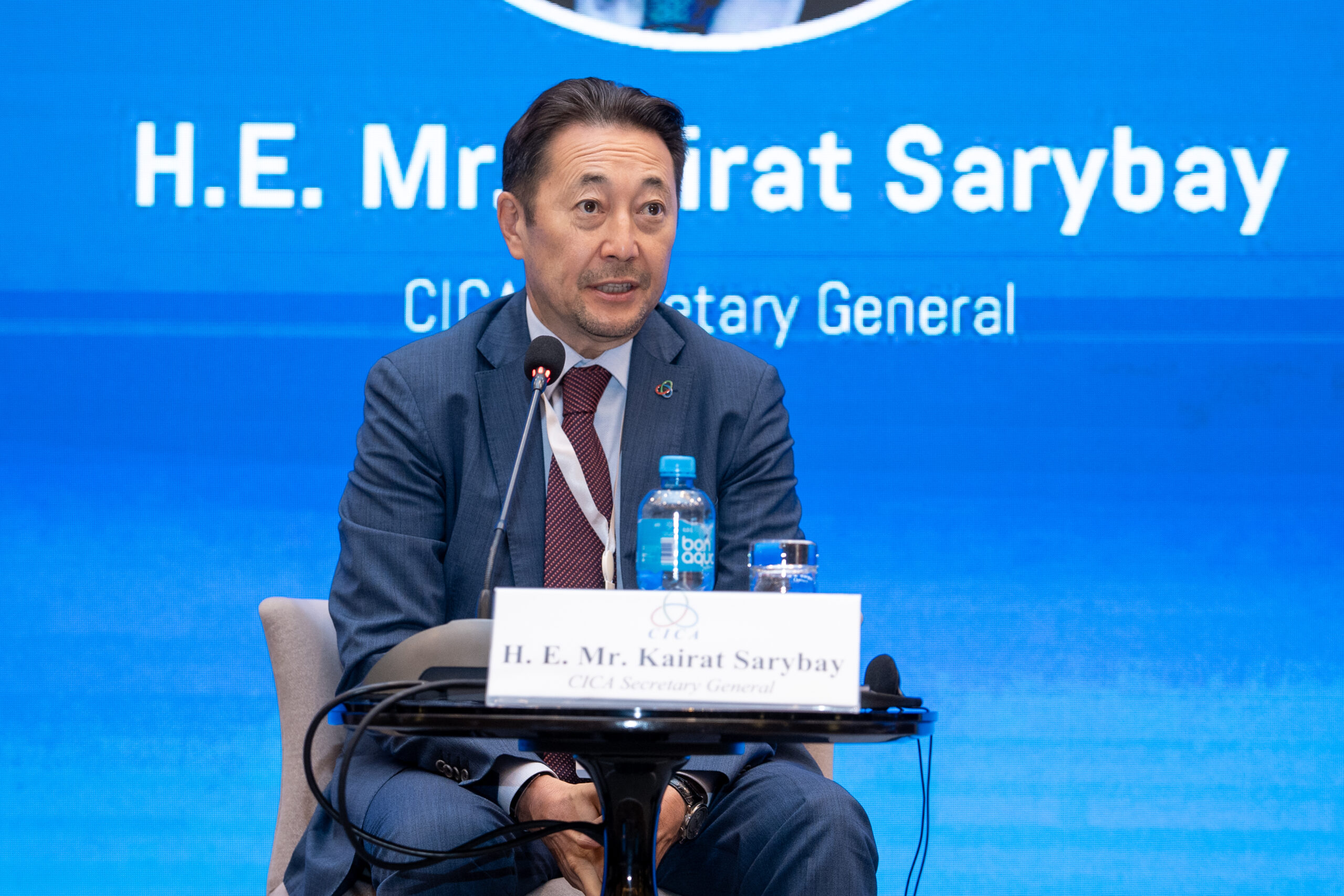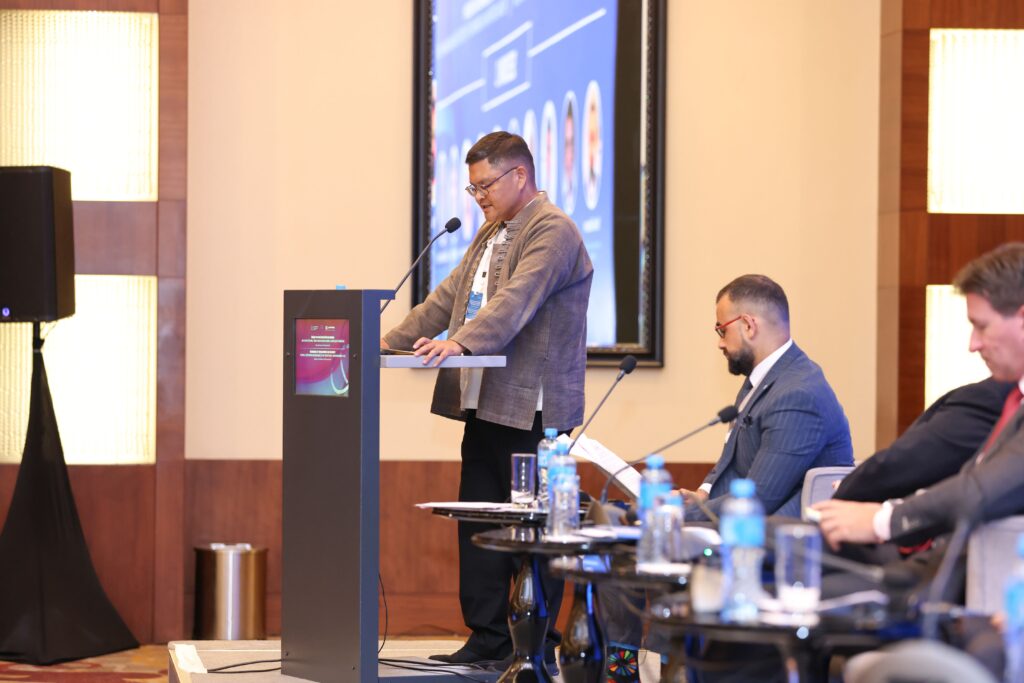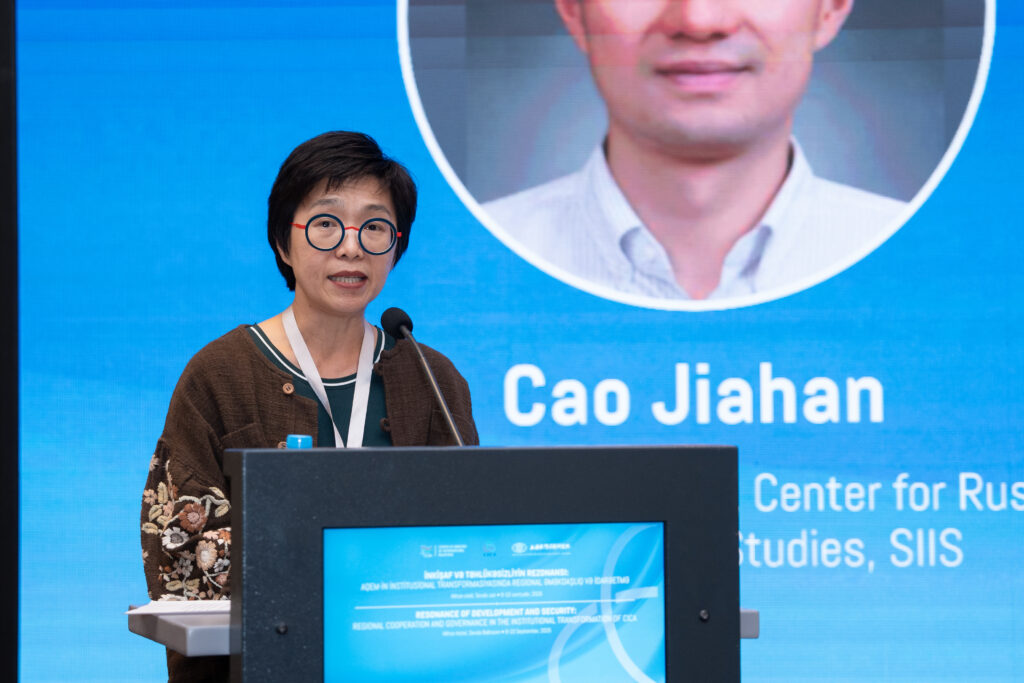The Institute of Asian Studies, Chulalongkorn University, in its capacity as Thailand’s officially appointed representative to the CICA Think Tank Forum by the Ministry of Foreign Affairs, participated in the 13th CICA Think Tank Forum held in Baku, Republic of Azerbaijan, under the theme “Resonance of Development and Security: Regional Cooperation and Governance in Institutional Transformation of CICA.”
This forum was co-organized by the Center of Analysis of International Relations, the Shanghai Institute for International Studies, and the CICA Secretariat. Discussions centered on international cooperation and the direction of global development amid volatile conditions such as trade wars, geopolitical rivalry, and environmental and climate crises. A central theme was the development of trade and cooperation routes through Central Asia and the Caspian Sea, widely known as the Middle Corridor.
The Middle Corridor, or Trans-Caspian International Transport Route (TITR), is emerging as a critical axis of Eurasian connectivity. Beginning in China’s Xinjiang region, it runs through Kazakhstan and Central Asia, crosses the Caspian Sea, passes through Azerbaijan and Georgia, and enters Europe via Turkey. Distinctively, it bypasses northern routes through Russia and southern routes through Iran, reflecting both shifting geopolitical dynamics and the global demand for diversified trade routes. Since the Russia–Ukraine war in 2022, the Middle Corridor has drawn heightened attention from Europe and Asia as an alternative to secure supply chains.
The significance of the Middle Corridor lies in its potential to reshape regional economic geographies. For China, it strengthens the Belt and Road Initiative by reducing dependence on Russian infrastructure. For Central Asian states, it offers opportunities to overcome landlocked limitations and expand external linkages. For Turkey, it consolidates its role as a logistics hub bridging Asia and Europe. For the European Union, it provides an alternative to reinforce trade security while expanding cooperation. Despite challenges—such as infrastructure readiness, customs coordination, and railway gauge differences—international support has demonstrated its long-term viability.
Although geographically distant, Thailand can still connect to and benefit from the Middle Corridor through its growing integration with China’s western transport networks. The China–Laos Railway, linking Bangkok to Kunming, provides a direct gateway to Xinjiang, the starting point of the corridor. This connection enables Thailand’s exports—particularly high-value and time-sensitive goods—to reach Central Asia and Europe more efficiently, reducing reliance on maritime shipping via the Strait of Malacca and the Suez Canal. Furthermore, Thailand’s Eastern Economic Corridor (EEC)strengthens its role as a regional logistics hub, consolidating goods from across ASEAN for onward transport to Eurasian markets. Strategic partnerships with Turkey, Azerbaijan, and Kazakhstan can further enhance this connectivity.
Thus, the Middle Corridor is not merely a distant trade route, but an opportunity for Thailand to expand its role in Eurasian trade, strengthen global supply chain resilience, and elevate its standing as a bridge between Southeast Asia and Europe.
At this forum, Dr. Jirayudh Sinthuphan, Deputy Director of the Institute of Asian Studies, and Dr. Waraporn Chatratichart of the Faculty of Communication Arts, Chulalongkorn University, represented the Institute in delivering remarks. Their speeches emphasized the importance of advancing cooperation and trust among nations through the CICA framework. They stressed that development and security must be viewed as inseparable, and proposed that CICA invest in three key areas: strong governance, strategies to respond to emerging global threats, and the creation of a unifying narrative to strengthen regional identity. They further argued that for any international organization to remain truly relevant, it must empower people—by helping women, youth, and communities unlock their full potential and build a better future for themselves.
The Conference on Interaction and Confidence-Building Measures in Asia (CICA) is an intergovernmental forum aimed at enhancing cooperation to promote peace, security, and stability in Asia, based on the recognition of the close interconnection between security in Asia and in other parts of the world. Its core principles include the indivisibility of security, joint initiatives, and mutually beneficial interaction between states both large and small. The concept of CICA was first proposed by President Nursultan Nazarbayev of Kazakhstan at the 47th Session of the United Nations General Assembly on 5 October 1992.


